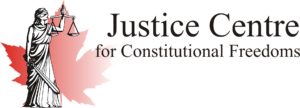LN Feature: How free are we in Canada today?


But the group also fights a number of other battles. It has represented pro-life campus clubs when their free speech rights were infringed, and it’s even in court fighting over license plates – most famously, a case involving a man named Lorne Grabher, who had a personalized plate that was deemed offensive by the Nova Scotia Motor Vehicle Department.
Last weekend, I had an opportunity to listen to John Carpay, the president of the Centre, speaking to a group of social conservatives on Vancouver Island. One of the things he talked about was the tension that exists between the Charter of Rights and Freedoms and so-called “Human Rights Codes” in various provinces. I had a chance to pull him aside for an interview at the event.
—
LN: One of the things that struck me about (your) presentation; you identified the “tension” between the foundation of freedom and the imposed speech that comes with Human Rights legislation. Talk to me about that tension.
JC: Well, the Canadian Charter of Rights and Freedoms, Section 2, protects the freedoms of conscience, religion, expression, association, (and) peaceful assembly. And when Human Rights legislation was brought in in the 1960s it was sold as an anti-racism thing. It was sold to the public as, “Surely you don’t think it’s right if a landlord refuses to rent out an apartment to a black guy.” Or “Surely you disagree with a woman not getting promoted in the workplace just because she’s a woman.” And most people thought, “Yeah, okay. You know, that kind of bigotry – we should legislate against bigotry.” Okay. Fair enough.
Fast forward 40 years, and now you’ve got sexual orientation and gender identity, and this legislation is now being used to attack freedom of speech and freedom of religion. It always did attack freedom of association; I mean, freedom of association is the right to associate or not associate as you see fit. So that has always been under attack. But the early legislation, initially, it didn’t attack freedom of expression and freedom of religion the way that it does now.
So we’re stuck with it unless and until enough Canadians properly appreciate the Charter freedoms and decide that honouring the Charter freedoms is more important than preventing hurt feelings.
LN: What’s the state – I mean your organization is called the “Justice Centre for Constitutional Freedoms” – what’s the state of constitutional freedom in Canada today, generally?
JC: It’s in decline, and it’s likely to get worse in the short term. But I make no predictions about the long term.
LN: But that was going to be my next question. Where are we going?
JC: Well, you know, the trends are not encouraging. When you’ve got two-thirds of the lawyers in BC voting to attack the fundamental Charter freedoms of evangelical Christians in general, and Trinity Western (University) in particular, that’s a sad state of affairs. When you’ve got laws in Alberta that require every school to set up a homosexual club known as a Gay-Straight Alliance that is advocating a message contrary to the Catholic-Evangelical-Jewish-Muslim schools that are required to have these clubs, that’s a profound violation of parental rights.
When you get laws passed like that, we’re not in good shape. But again, the long-term future… nobody can predict.
LN: One of the things that intrigues me about your organization – I get all your Press Releases – you fight the big battles and you fight the “not-so-big” battles. I’m thinking of the “Grabher” license place thing. I look at that and I go “Is that a hill to die on, John?”
JC: Yes, it’s a hill to die on. Because we lose our freedoms bit by bit. And so here’s an example of a government body that is pandering to somebody who claims to “feel offended.” And that’s the single biggest threat to freedom of expression in Canada today; it’s this attitude (or this belief) that more and more people seem to have that they have a right to go through life without seeing and hearings things that they find offensive. And so we want to nip this in the bud and aggressively confront it whenever we can. Any time that somebody says, “I feel offended” and government responds to that by silencing the speech, we want to get in there and say, “Um… no. Governments should uphold… free speech rights. They shouldn’t pander to offended people.”
LN: I want to go back to the Trinity case because it’s looming. I mean, the hearing is coming up in a little over a month. As you alluded to in your talk, there’s a precedent (in favour of) Trinity already with respect to the BC College of Teachers. And yet in your address, you talked about only a “50-50 chance” that the Supreme Court is going to uphold its own precedent. What’s changed?
JC: Well, the Supreme Court demonstrated in its euthanasia ruling – the Carter decision which came out in early 2016 – the Supreme Court of Canada demonstrated that it’s perfectly willing to overturn clear precedent that they had set in the Rodriguez case. In Rodriguez, they said that the laws prohibiting assisted suicide are valid under the Constitution. And then they did a 180-degree reversal in the Carter case and said the laws that prohibit assisted suicide are not valid under the Constitution.
I’m not saying that the Supreme Court will never adhere to precedent. I think in most cases they would, but they don’t necessarily, and they do like to pander to popular culture and popular trends. We saw this with the Supreme Court of Canada reversing the initial decision about interveners (in “Trinity”.) Initially, the Court said there were just a half a dozen or so (interveners) that (they were) letting in – and then there was a public outcry that LGBTQ organizations were being excluded, and the Supreme Court reversed itself and allowed in everybody.
So sadly, you cannot discount culture, much as you would like to or want to.